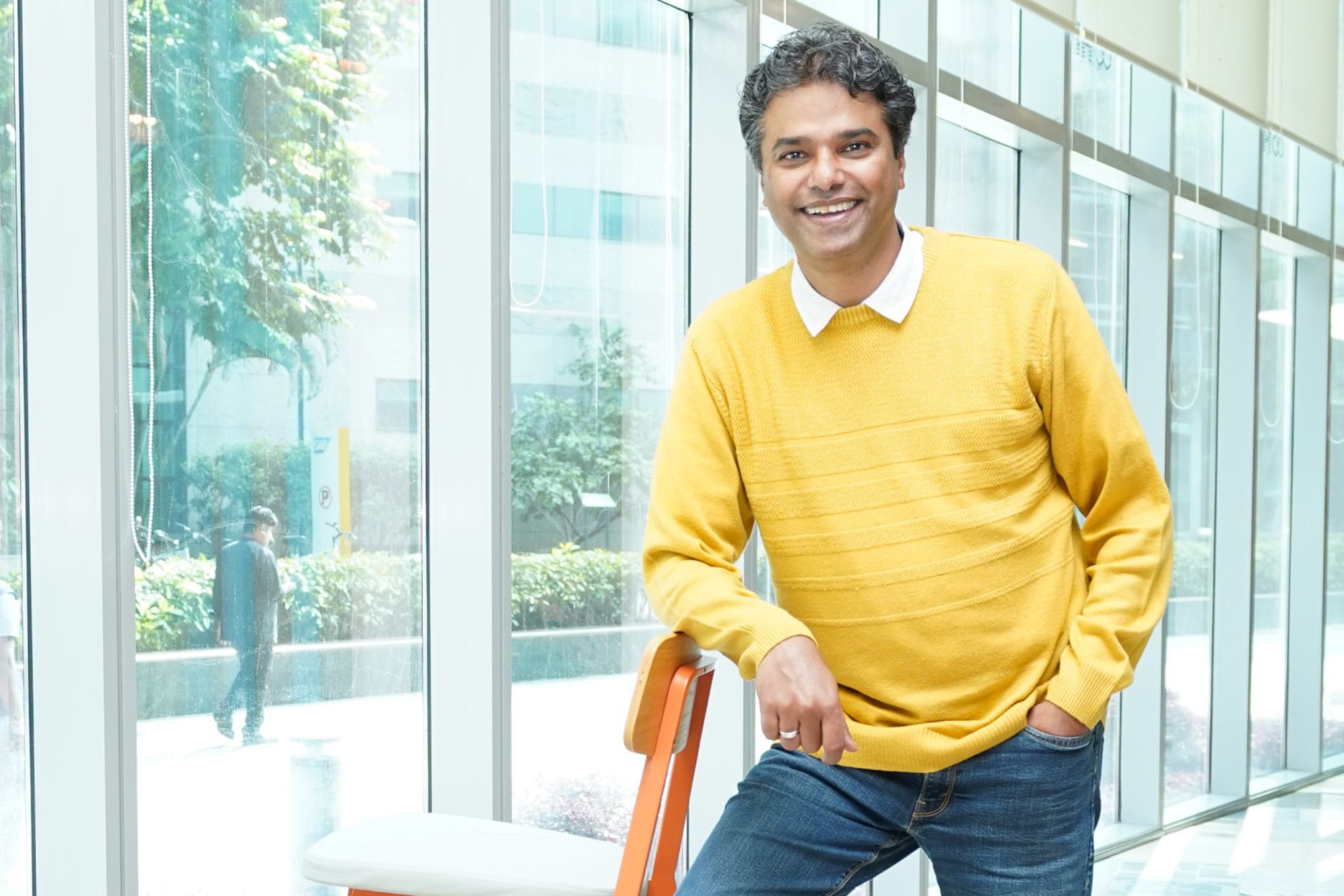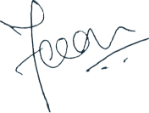An atypical life: How Ferose VR drives the diversity mindset

When his eighteen-month-old son was diagnosed with Autism Spectrum Disorder, VR Ferose’s world came undone. Until that fateful moment, life had been very kind to him. At 33, he was the MD of SAP Labs, had married the love of his life and was joyously celebrating the birth of his first child. His first question to the doctor was, “How do I fix this?”
But there is no making someone “un-autistic.” The news sent Ferose spiralling into depression. “For the first time, here was something I couldn’t control. I was used to being in control,” he says, as he connects with Global Indian. In the end, it was his mentor and long-time friend, Kiran Bedi, who gave him the answer he needed: “People spend their whole lives trying to understand what their purpose is, you’re incredibly lucky that purpose has found you.” She told him that he could dedicate his time to his primary responsibility – taking care of his son, which he does. Or, he could use the considerable means and power at his disposal to lend a voice to a historically marginalised community – people with disabilities. Ferose chose the latter.
Since the birth of his son, he has gone on to write four books, attend two UN conferences, speak at the World Economic Forum and is the founder of the India Inclusion Summit. He also started the Autism at Work program, which fetched him numerous awards and also became a Harvard Case Study. In 2014, he wrote GIFTED, with Sudha Menon, which went on to win him the Kannada Sahitya Academy Award. His most recent offering is the graphic novel GRIT: The Vishwas story, with Sriram Jagannathan
Rising above adversity
VR Ferose hardly needs an introduction. Based in San Ramon, he heads the SAP Academy for Engineering. He has played many roles during his 23-year association with the company, including making Managing Director at 33 and a stint as the head of the Globalisation Services Unit. That’s his professional life. Over the last decade, Ferose has emerged as one of the leading voices of inclusion and diversity, and of Persons with Disabilities (PwDs). According to The Invisible Majority, PwDs make up a staggering 15 percent of the global population. While our imaginations (and a lack of awareness) limit us to images of people in wheelchairs and the blind, the term itself is constantly evolving. “Simply put, we are disabled if our inability to carry out daily activities hinders us from participating fully in society,” they write.
It’s well past midnight in California when he arrives for our virtual meeting. In the background, I can see his vast collection of books – over three thousand, he says, all of them signed. He is visibly exhausted – he has spent the day taking care of his son, who needs full-time care and the couple’s lives are centered around making sure he gets it. “I can speak to you now that Vivaan is sleeping.” Even so, he gives me his full attention – over the years, time has become Ferose’s most valued asset. It isn’t always given out, but when he does, he does so fully. “I have done my research on you,” he says. “I looked to see if this was worth my time before I said yes.”
“Everything I have achieved so far has been because of my son,” he says. “Yes, I have had a successful career but corporate roles come and go and nobody cares. What matters is doing something that is meaningful to someone else. I was leading a life of success then but now I’m leading one that’s far more significant.” The quiet strength he exudes is an acquired trait, learned the hard way.
The diversity mindset
“If you have role models at home who embody that spirit, it is the best way,” he remarks. Ferose was born in 1974 and since his father worked in the Railways, the family travelled extensively across the country. He was exposed, at an early age, to India’s cultural diversity. Ferose went on to study at the Regional Engineering College (now the National Institutes of Technology) in Warangal, founded by Nehru with the mission to promote national integrity. “I had classmates from every state in the country. It gave me a broader perspective of the world.”
Life carried on in the same vein – “I’m a Muslim from Kerala, my wife is a Hindu Brahmin from Maharashtra. Diversity is a mindset, a way of life and we have it, even at home.” Later, his career would take him all over the world – he has travelled to over 40 countries. “We tend to complicate the concept now,” he smiles. “They categorise it as gender, disability, race and so on, it keeps on changing. At a fundamental level, it’s a mindset and that’s all.”
After college, Ferose moved to Chennai to begin work as a systems analyst at Ramco Systems. He boarded the train with a gift of Rs 1,500 from his father, which allowed him to buy “a shirt, a pair of pants, and a pair of shoes.” In his blog, he reminisces about waiting eagerly for salary day and “being broke mid-month.”
The SAP journey
Ferose first joined SAP Labs as a software engineer and his tipping point came early when, in 2005, he moved to Germany as the Executive Assistant to to SAP Board Member Gerhard Oswald. He was one of the first people from India to be given that role.
In 2007, he was made MD of SAP Labs India, Gurgaon. “That happened very quickly,” he smiles. “We can only ever connect the dots in retrospect but at that time, I never thought I would achieve the kind of progression that I did.” It was also the year his son was born. Between then and 2012, Ferose made huge leaps in inclusion and diversity at SAP, including setting up Prayas Lab as part of the ‘Autism at Work’ pilot case study. He was also selected as a Young Global Leader by the World Economic Forum and founded the India Inclusion Summit. Under his leadership, SAP Labs India was ranked, for the very first time, as a Great Place to Work.
Three things are vital to success, he believes – mentors, coaches and sponsors. “I had all those things.” As his professional life continued to shine, Arun Shourie and Kiran Bedi were among those who stood by him through a much more significant journey. He went from a victim to an agent of change. If Bedi had told him that he had found a life purpose, Shourie, who is also father to a profoundly disabled son, helped him see what he could do. In his book, Does He know a Mother’s Heart, Shourie tries to understand what religions say about disability. The ‘karma’ theory blames the parents, which is harsh. Shourie settles in the end on what the Buddhists had to say – the highest form of service is to take care of somebody who can’t give you anything in return. Shourie told Ferose to drive the narrative to change the mindset.
Changing the narrative
Shourie’s words inspired Ferose to found the India Inclusion Summit, a conference that celebrates differences. “It’s not about feeling sorry for people. We need to go from sympathy to empathy and from there, to compassion.” As Ferose did his work, he found that the community was crippled by society itself. Caregiving, Ferose learned, was done mostly by mothers and the birth of a disabled child has ended many a marriage. “I would go to therapy sessions with ten other people and be the only male in the room,” he says.
Awareness was vital. As he came to terms with his own life, he had run through the gammut of mistakes himself, including trying to find “a cure.” He read books that promised one, driven by the idea that that Autism was a problem that needed to be solved. Until he realised that he was going about it the wrong way – everyone is unique, with their own strengths and shortcomings. Today, that narrative has changed. “Our idea is that for every condition there is an enhanced ability. If you are blind, you can hear better. The key was to change a predominantly negative narrative and make it positive.”
Driving social change
Much recognition has come his way for his efforts. In 2014, he was in the India’s Top 40 under 40 by Economic Times and Spenser Stuart. Two years later, Autism at Work became a Harvard case study.
Awards aside, Ferose is aware that a lasting impact is not easy, or even quantifiable, really. Change can take a lifetime and he knows that he might not even see it happen. “Still, we do our bit.” After having run the Inclusion Summit for over a decade, he is often asked about the impact. “I have no clue,” he admits. “That can only be measured later. I am here to do my small bit to make a difference. Our fundamental aim is to spread awareness – when people are sensitised, they will act.”

